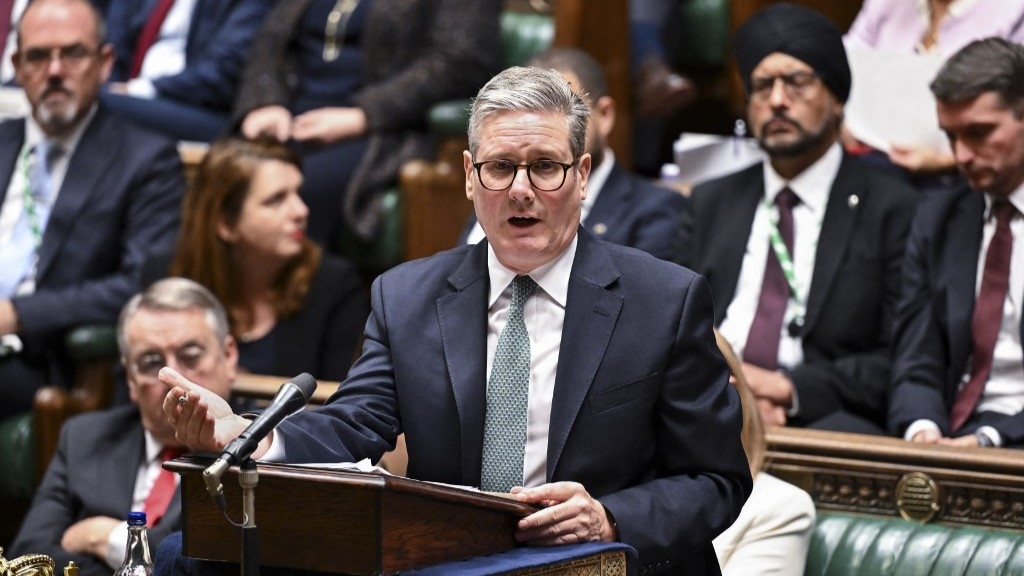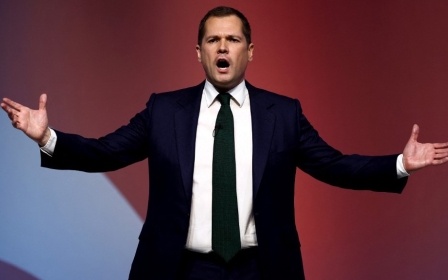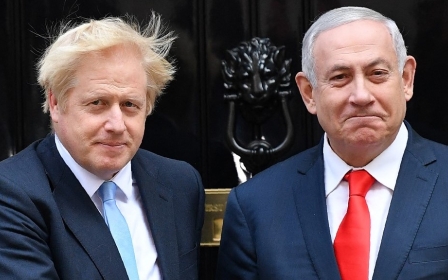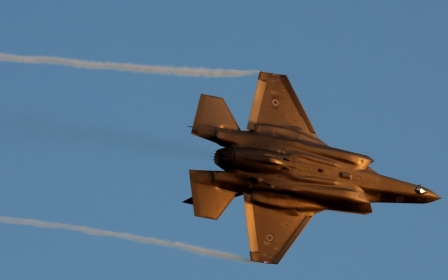UK: Starmer says 'no' when asked to end 'complicity in war crimes'

British Prime Minister Keir Starmer on Monday answered "no" when asked by MP Zarah Sultana to "do what is morally and legally right and end the government's complicity in war crimes by banning all arms sales to Israel".
During Prime Minister's Questions in the House of Commons, Sultana said: "In the light of the anniversary of the horrific October 7 attacks, I again repeat the call for the immediate release of all hostages."
She then addressed a question to Starmer.
"And in light of Israel's genocidal assault in Gaza, the violence in the West Bank and the invasion of Lebanon, I ask the prime minister if he believes that Israel's right to self-defence justifies a death toll, according to research by US medical professionals who have worked in Gaza, [that] has now surpassed 118,000, as well as the 2,000 people killed in Lebanon.
"And will he do what is morally and legally right and end the government's complicity in war crimes by banning all arms sales to Israel, including F-35 fighter jets, not just 30 licences? Yes or no?"
New MEE newsletter: Jerusalem Dispatch
Sign up to get the latest insights and analysis on Israel-Palestine, alongside Turkey Unpacked and other MEE newsletters
Starmer stood up and said: "No."
He then added: "But it is a really serious point. Banning all sales would mean none for defensive purposes."
Sultana interjected, saying: "F-35 fighter jets."
Israel has used the F-35, described by its American manufacturer Lockheed Martin as "the most lethal" fighter jet in the world, extensively in its year-long offensive in Gaza, in which over 41,000 people have been killed, following the Hamas-led attacks on southern Israel in October 2023.
Starmer repeated: "None for defensive purposes."
He added: "On the anniversary of October 7, and days after a huge attack by Iran into Israel, [it] would be the wrong position for this government and I will not take it."
Arms control experts and researchers say Israel has had to rely on F-35s to maintain the high volume of strikes conducted over the past year in Gaza and now in Lebanon, where weeks of bombings have killed more than 2,000.
The British government has previously argued that suspending F-35 parts, whose final destination is Israel, would disrupt the global supply chain, as the parts are difficult, if not impossible, to trace.
However, this claim is heavily disputed by many arms control experts.
Sultana is considered to be on the left of the Labour Party and was an ally of the party's former leader, Jeremy Corbyn.
She lost the whip in July after supporting a motion to abolish the two-child benefit cap, meaning that while she is a Labour member, she is currently an independent MP.
British defence for Israel
British forces were involved in defending Israel during a missile attack by Iran in early October.
Defence Secretary John Healey said: “British forces have this evening played their part in attempts to prevent further escalation in the Middle East.”
He did not give specific details, but the BBC reported that UK fighter jets were involved - as they were during Iran’s last attack on Israel in April.
Starmer was on the phone to his Israeli counterpart, Benjamin Netanyahu, when Iran’s attack began.
The two had been speaking for about 15 minutes about whether Iran would fire missiles when Netanyahu was informed that Iran had begun an attack and had to leave the call.
After Iran’s attack, Starmer said in a televised address that Iran “has menaced the Middle East for far too long, chaos and destruction brought not just to Israel, but to the people they live amongst in Lebanon and beyond.”
He said: “We stand with Israel and we recognise her right to self-defence in the face of this aggression,” adding that Britain supports “Israel’s reasonable demand for the security of its people.”
Middle East Eye delivers independent and unrivalled coverage and analysis of the Middle East, North Africa and beyond. To learn more about republishing this content and the associated fees, please fill out this form. More about MEE can be found here.




